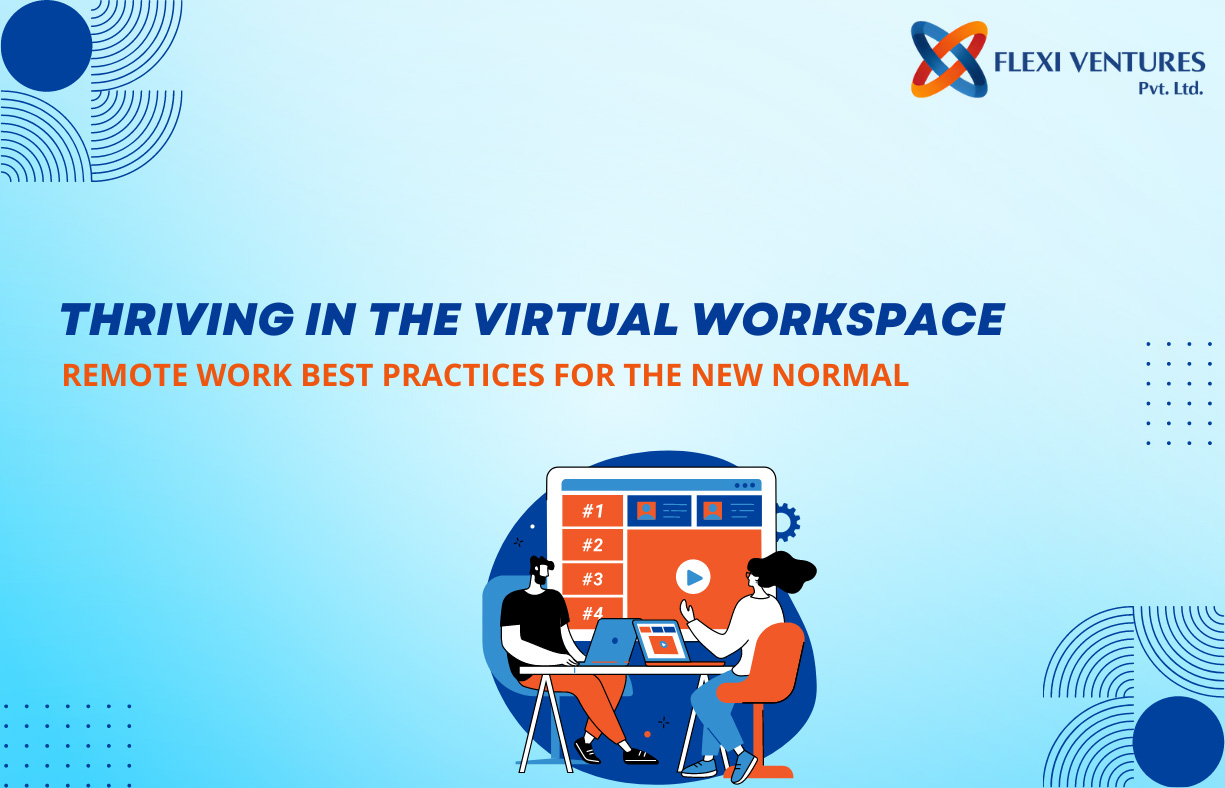In today’s virtual-centric world, remote work presents various challenges that can impede team cohesion and performance. It’s vital to address these challenges to enhance the team’s performance.
The surge in remote work has revolutionized our work habits, providing unparalleled flexibility and autonomy to employees globally. Whether you’re experienced in remote work or new to virtual environments, adapting to this change can be a mix of excitement and challenges. However, worry not – we’re here to offer practical advice and strategies to excel in the virtual workplace and leverage this new era for a better work-life balance.
Common Challenges of Remote Work
1- Communication Barriers
Effective communication is essential for every successful team. However, remote work often introduces barriers that can hinder the impeccable flow of information.
The absence of face-to-face interactions can lead to misunderstandings, and differences in time zones can further complicate matters.
2- Loneliness and Isolation
Sometimes Remote work can feel isolating, leading to feelings of loneliness. These emotions not only impact an individual’s well-being but can also affect team morale and cohesion.
3- Accountability and Productivity
Maintaining accountability and productivity in a remote setting can be challenging.
The comfort of home can invite distractions, and team members might struggle to meet their targets without clear guidelines.
4- Team Collaboration
Impromptu discussions and brainstorming sessions that often fuel creativity can be difficult to replicate in a virtual environment.
This lack of in-person interaction can hinder effective teamwork and the exchange of innovative ideas.
Strategies for Overcoming Remote Work Challenges
Now that we have identified the challenges remote teams face, let us explore effective strategies to address these issues directly and foster an environment where remote work can thrive.
Communication Enhancement
Regular video conferences and virtual meetings are essential for bridging the communication gap. The personal touch of seeing colleagues’ faces and hearing their voices is something that written communication lacks. Instant messaging and collaboration tools, such as Slack and Microsoft Teams, offer platforms for real-time discussions, promoting quick and efficient communication.
Building a Remote Work Culture
It is crucial to build a strong sense of community among remote workers. Engage in virtual team-building activities, like online games or virtual happy hours, to create a bond beyond work-related interactions. Encourage open and transparent communication, enabling team members to freely express their concerns and successes.
Time Management and Productivity
While remote work offers flexibility, it’s crucial to establish a routine and dedicated workspace to ensure productivity.
To stay accountable for tasks and goals implementing time-tracking techniques is required and emphasizes the importance of achieving results over the number of hours worked, promoting a results-oriented mindset.
Strengthening Team Collaboration
With the right tool, virtual collaboration can be as effective as in-person collaboration. Utilize project management tools like Asana and Trello to assign tasks, track progress, and foster accountability. Leverage virtual whiteboards and schedule brainstorming sessions to replicate the brainstorming experience.
To achieve success in remote work, it is essential to:
- Leverage the right tools, such as video conferencing and collaboration platforms like Zoom and Microsoft Teams. These platforms enable face-to-face interactions and real-time collaboration.
- Project Management and Task Tracking Tools: Tools like Asana and Trello help manage tasks, assign responsibilities, and monitor progress.
- Virtual Whiteboards and Brainstorming Apps: Virtual whiteboards and brainstorming apps, such as Miro, facilitate collaborative idea generation.
- Time Tracking and Productivity Software: Time-tracking tools such as Toggl and Clockify enhance accountability and time management.
Tips for Managers and Team Leaders
For managers and team leaders, understanding how to lead and support your team is crucial for success. Here are some key points to focus on:
Lead with Empathy: Recognize that remote work presents unique challenges. Be empathetic to your team members’ situations and encourage open discussions about their needs and concerns.
Offer skill development resources: Invest in your team’s professional growth with online courses, webinars, and workshops. This not only enhances their skills but also demonstrates your commitment to their development.
Regular Check-ins and One-on-One Meetings: Schedule regular virtual check-ins to discuss project progress, address any challenges, and provide feedback. Individual one-on-one meetings allow for personal connection and provide a platform for team members to share their thoughts.
Flexibility and Adaptability: Understand that each team member has different work styles and responsibilities. Allow for flexible work hours and acknowledge that optimal productivity can vary throughout the day.
Promote Work-Life Balance: Encourage your team to disconnect after work hours and on weekends. This promotes a healthier work-life balance, reduces burnout, and enhances long-term productivity.
As the future of work evolves, the insights gained from remote work will shape our work environments. Embracing challenges fosters growth, innovation, and a more connected workforce, irrespective of physical distance. Tailoring these strategies to individual needs ensures that the journey toward remote work success remains dynamic and fulfilling.

